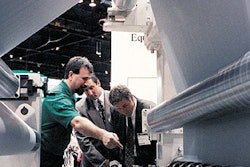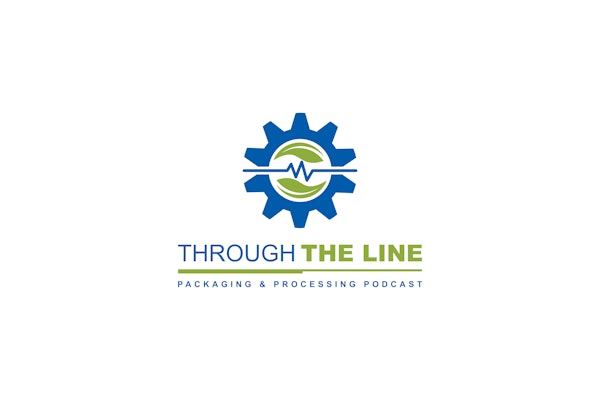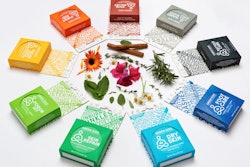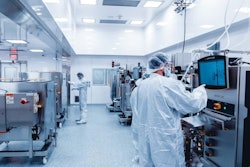Benefits: In the past, says Harder, "We used a pressure seal liner in a cap—so when we hand-sealed it to the bottle, the pressure from screwing the cap tight would cause the glue on the liner to seal to the mouth of the bottle." Unlike hand-sealing, the use of Enercon's Compak Jr. now provides tamper evidence. That helps Blessings meet Good Manufacturing Practices and ship packages with a more professional appearance, which in turn creates a favorable impression of Blessings Intl.
The Modular tablet counter-filler allows Blessings' personnel to open bulk packages of tablets and pour them into a funnel or hopper. The machine counts and fills bottles. "It replaces the backbreaking work of manually pouring tablets in a funnel over the bottle set onto an electronic balance, which we only do now for really small runs," says Harder.
Until Blessings added the Universal labeler, its employees and volunteers applied labels manually. The process was labor-intensive and resulted in inconsistent label placement. The automatic labeler consistently places labels, creating a professional look that helps justify the equipment investment.
"We want to have a reputation of quality," says Harder. "We follow Good Manufacturing Practices, and we've had people in Iraq and other places tell us how professional the labeled bottles look. Given that we have very limited space, and the fact that it is not easy to put pressure-sensitive labels on a round bottle straight, the net result is a much more professional-looking product." He adds, "We're now able to put an expiration date and lot number on preprinted pharmaceutical labels using the hot-stamp imprinter on the labeler. Previously, we had no way of printing those except one at a time on an electric typewriter.
"There's an immediate value in the new packaging equipment that we've already seen. It reduces time for bottling and labeling by about 75 percent, so there are labor savings," he notes, "even though we do have volunteers to help with labeling. The volunteers free up our full-time staff to do other tasks that are more appropriate for their skills." Volunteers do not work with filling operations.
Harder says, "The cost of the equipment purchases so far is about $20,000. To put it into perspective, that amount is small relative to [overall business] software investments and obligatory upgrades that come along. A new piece of equipment may last us 10 years, which means the amortized cost comes to $2,000 a year [for the three machines]."
--By Jim Butschli, Editor



















